Unit 1: Global Prehistory
1/9
There's no tags or description
Looks like no tags are added yet.
Name | Mastery | Learn | Test | Matching | Spaced |
|---|
No study sessions yet.
10 Terms
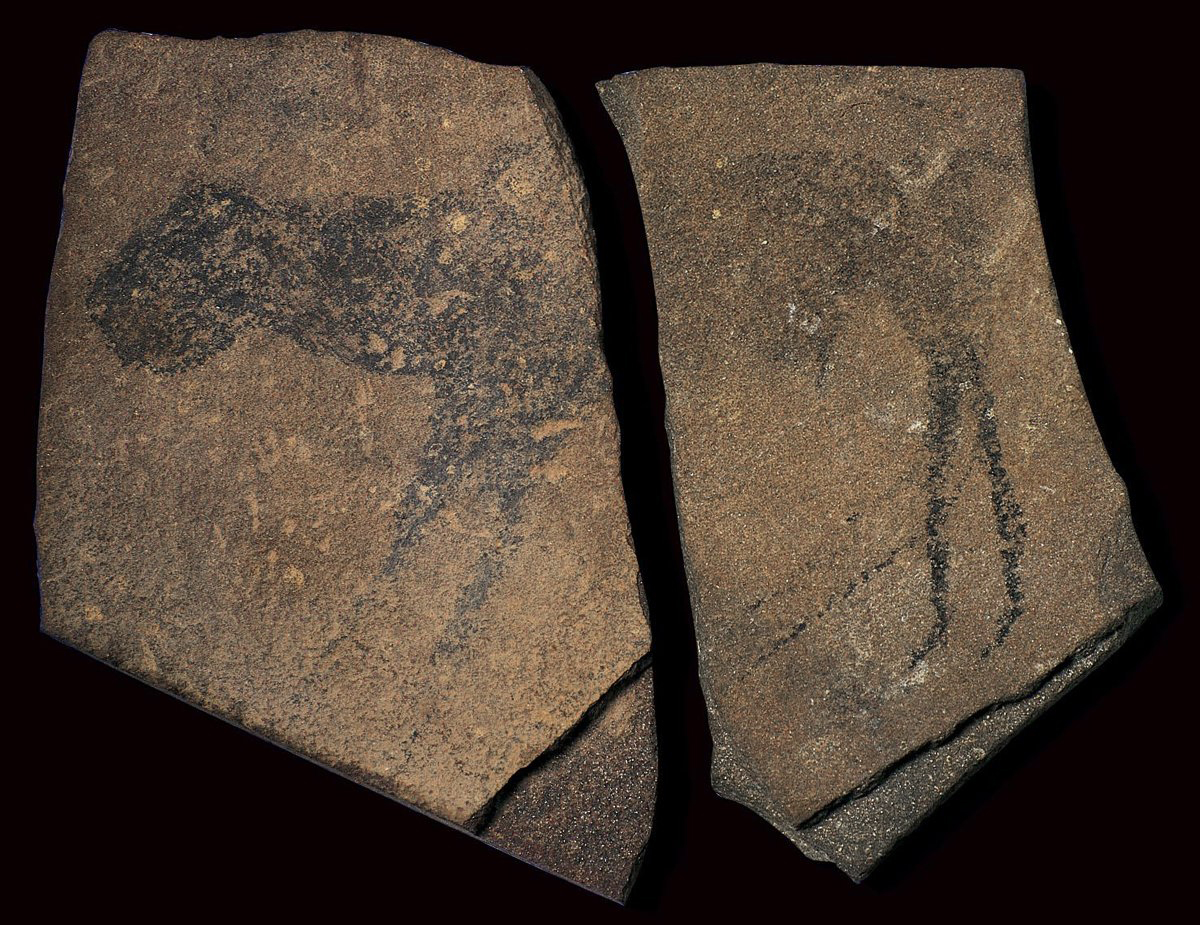
Apollo 11 Stones
Artist: N/A
Period/Movement: Middle Stone Age
Medium: Charcoal on stone
Location: Namibia, Windhoek (Africa)
Significance: Earliest example of rock art from Africa, shows composite form, named for the Apollo 11 space mission, similar to animal representations in cave paintings
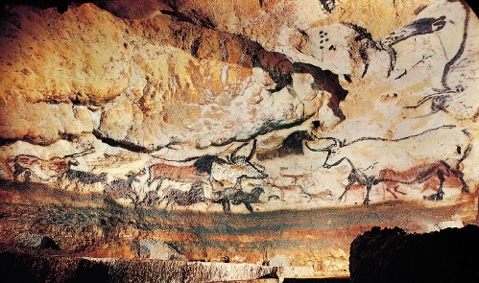
Great Hall of the Bulls
Artist: N/A
Period/Movement: Paleolithic Europe
Medium: Rock painting from natural materials (ex. charcoal)
Location: Lascaux, France
Significance: Composite form, superimposed: images placed on top of each other, showcasing an animal ritual, in situ (in a cave)
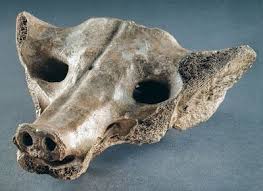
Camelid Sacrum in the Shape of Canine
Artist: N/A
Period/Movement: Mesoamerica
Medium: Bone
Location: Tequixquiac, Central Mexico
Significance: One of the earliest cultural artifacts to have been discovered in Mesoamerica, in the zoomorphic form, a spiritual mask
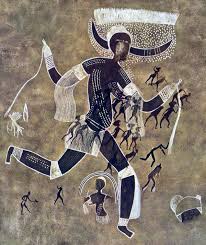
Running Horned Woman
Artist: N/A
Period/Movement: Neolithic Period
Medium: Pigment on rock
Location: Tassili n’ Ajjer, Algeria
Significance: early evidence of African costume and ritual performance, composite view, hierarchical scale, evidence of climate change due to the raffia
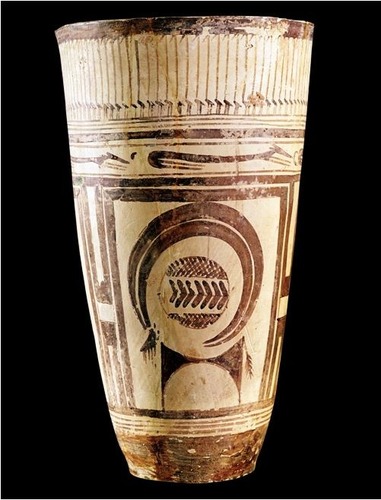
Bushel with Ibex Motifs
Artist: N/A
Period/Movement: Neolithic Period
Medium: Painted terracotta
Location: Susa, Iran
Significance: Geometric forms, set in registers, found in a cemetery: a funerary object, friezes of indigenous animals of the Susa area: dogs, birds, pre-Islamic use of animal forms in Middle Eastern art
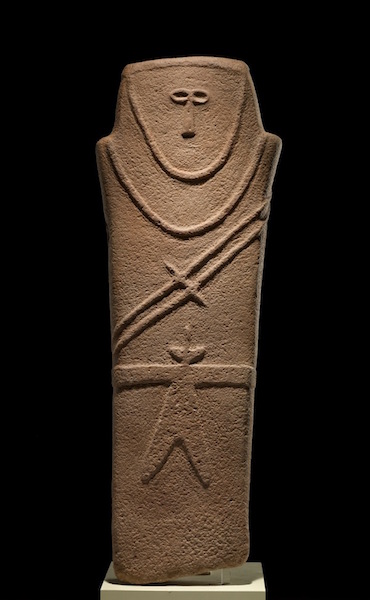
Anthropomorphic Stele
Artist: N/A
Period/Movement: Neolithic Period
Medium: Sandstone
Location: Arabian Peninsula, Saudi Arabia
Significance: funerary object, grave marker = stele, stylized in the simplicity of shapes, belted rope with knife can suggest a warrior figure
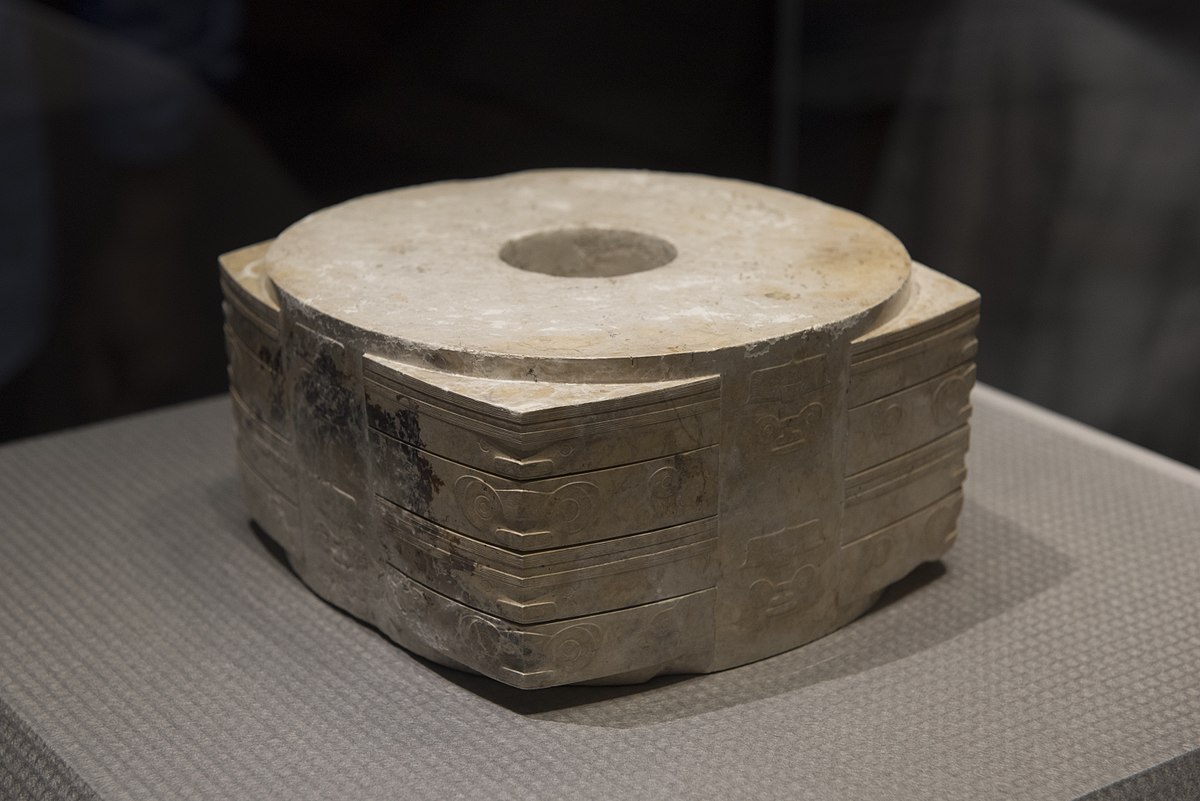
Jade Cong
Artist: N/A
Period/Movement: Neolithic Period
Medium: Carved Jade
Location: Liangzhu, China
Significance: Jade was a precious and expensive material, found in grave sites, funerary objects, and the hole in the middle represents the afterlife, a low relief
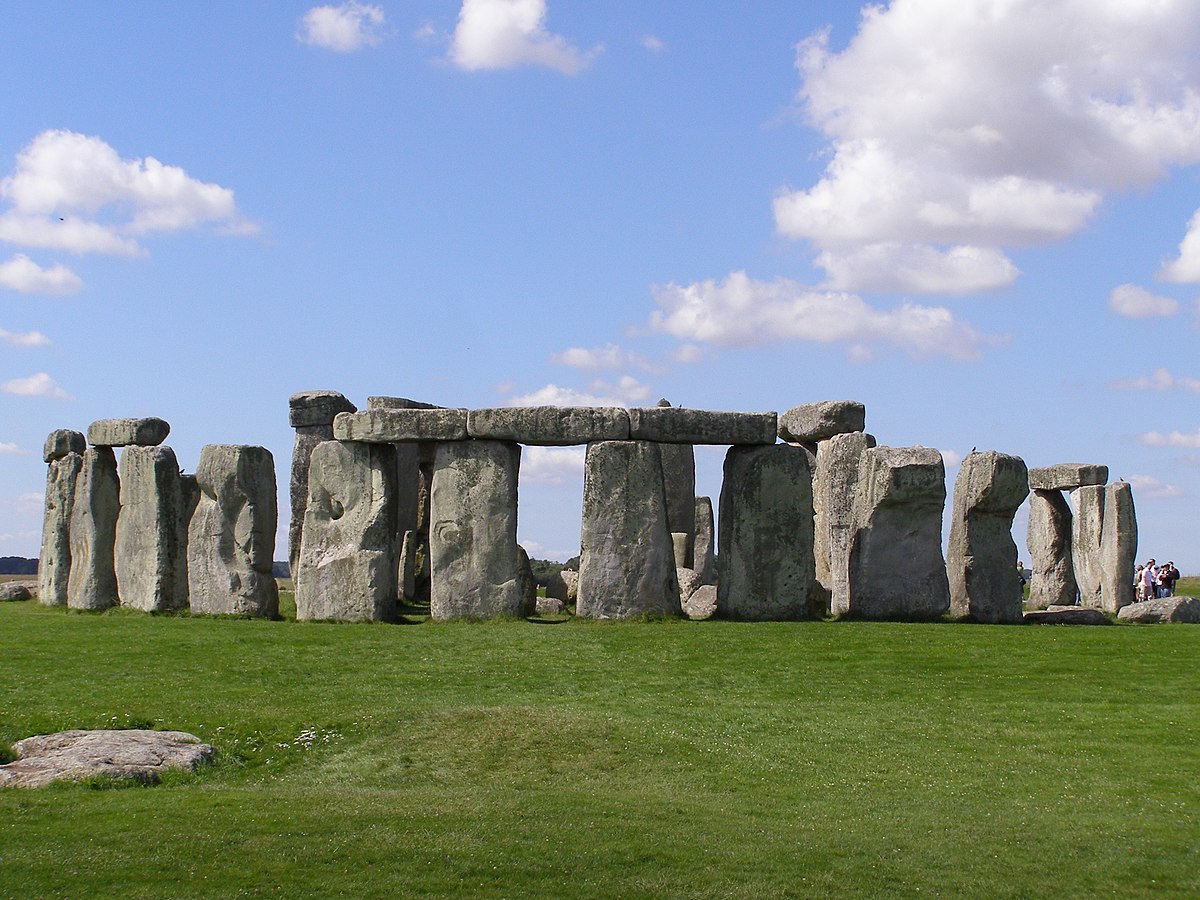
Stonehenge
Artist: N/A
Period/Movement: Neolithic Europe
Medium: Sandstone
Location: Salisbury Plain, Wiltshire, UK
Significance: Post-and-lintel, funerary site, pilgrimage site, marker of mid-summer solstice, stones in centralized plan
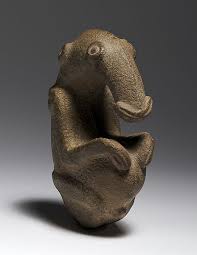
The Ambum Stone
Artist: N/A
Period/Movement: Oceanic
Medium: Greywacke stone
Location: Ambun Valley, Papua New Guinea
Significance: Zoomorphic figure, broken and repaired, which allowed for carbon dating, meant to resemble an anteater, supernatural power, spirit stone in rituals
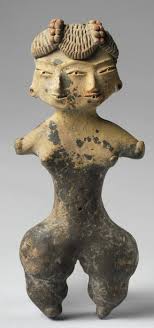
Tlatilco female figurine
Artist: N/A
Period/Movement: Neolithic Period
Medium: Ceramic
Location: Central Mexico
Significance: Funerary object, related to women’s roles in regard to nature (fertility and maternity), two faces— multiple personalities, duality of existence, life or death.